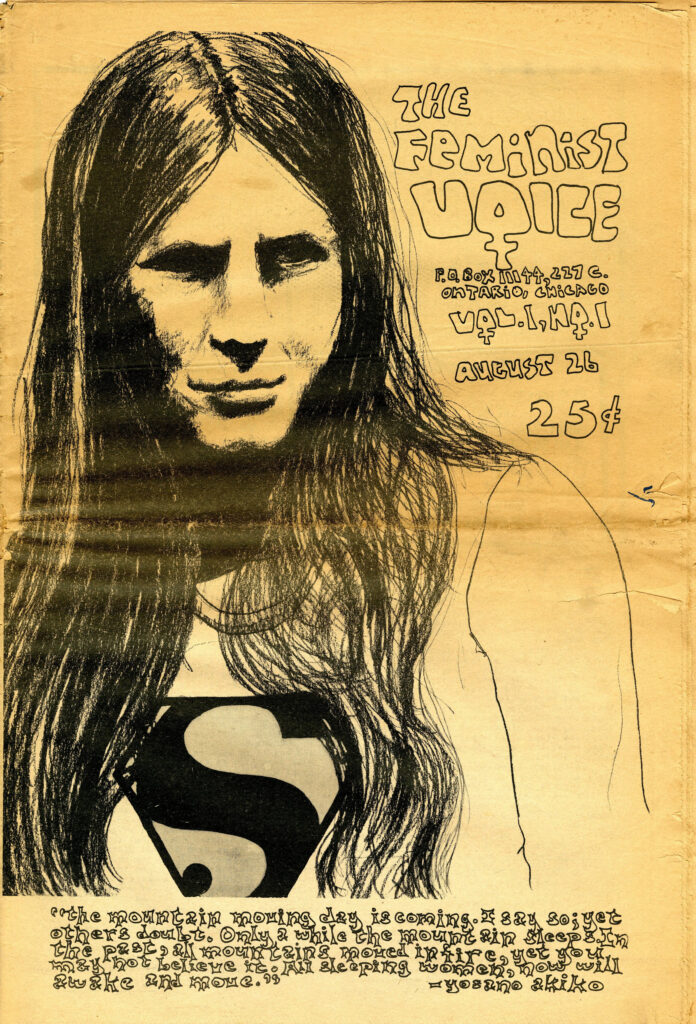This post is part of the WLA blog’s 2022 series written by guest writers. These writers are graduate students in the Public History program at Loyola University Chicago. Each visited the archives during Fall 2021, delved into the collections, and wrote about a topic not yet explored here. We are excited to share their research and perspectives!
On August 26, 1971, The Feminist Voice, a magazine “published in the interest of women” was first released in Chicago. Four years earlier, in 1967, the first “new feminist,” later known as “second wave feminist,” group in the United States was formed and released a regular newsletter, Voice of the Women’s Liberation Movement. It was from this Chicago Women’s Liberation Union newsletter that The Feminist Voice drew inspiration to report on the rise of new feminism in Chicago and the larger nation. The date of the first issue, August 26th, was of key importance to the writers of the magazine as it was the anniversary of the ratification of the 19th Amendment which recognized women’s suffrage nationally, a victory that inspired Second Wave Feminists.[1]

The Feminist Voice collective was composed of a diverse group of women; married women, divorced women, women with and without children, lesbian and heterosexual women, politically organized women, and “loners” [2]. While they shared little philosophically, the collective shared a few key beliefs that the magazine would be used to address. The first editorial column published in The Feminist Voice made their central cause clear: “We know that the liberation of all women must become women’s number one priority. We will not be talked into fighting for another’s cause as our sisters in the 1920s and 1960s were when they fought for the civil rights of other people. We have learned that fighting for the rights of others keeps us from facing our own oppression. We believe that people must free themselves from forces that oppress them [3].” The Feminist Voice would serve as a place for these women to express their “reasoned rage” in alternative to the “male-dominated press” and a space for self-discovery [4].
Continue reading
